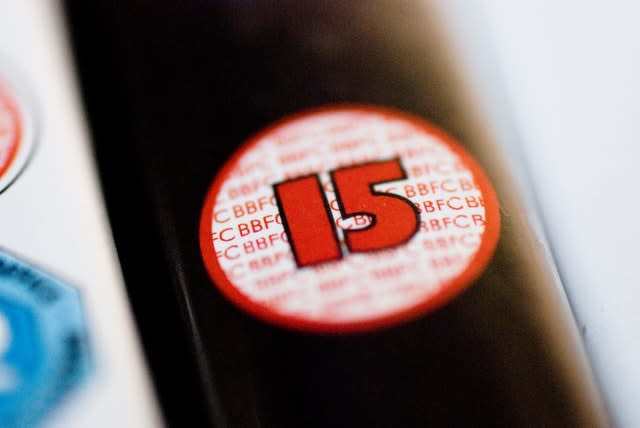BBFC to change domestic abuse references in film and TV ratings
The way domestic abuse is referred to in film and TV classifications will change following new research.
The British Board of Film Classification (BBFC), which decides on the certification of movies and episodic content and offers guidance on the themes addressed, has worked with charities Women’s Aid and Respect to change the way the issue is labelled in ratings information.
The term “domestic abuse” will now be used instead of “domestic violence” and the issue will be flagged in all content, even if it does not impact the certification.

The research included female and male survivors of domestic abuse, experts and the general public.
Respondents said they think it is right the BBFC classifies issues of a domestic abuse in a higher category and added the term is well placed to describe such scenes, because it can refer to psychological and economic abuse, gaslighting (psychological manipulation which sows seeds of doubt in the victim) and non-sexual abuse of children.
The BBFC will also stop using the term “themes of (domestic abuse)”, which respondents said trivialised the issue.
Research also found that going into too much detail in the ratings information can be problematic because it can distress those who have been affected by the issue.
The BBFC will limit the use of “child abuse” to scenes where child sexual abuse is depicted only, with non-sexual child abuse also described as “domestic abuse” after research found that the term “child abuse” was widely associated with sexual abuse.
David Austin, chief executive of the BBFC, said: “This timely and important research is shining a light on people’s attitudes towards domestic abuse, and it’s important that our classifications reflect what people think.
“It’s very encouraging to see that we’re getting our classification decisions right when it comes to domestic abuse, which already can be category defining.
“But what it has shown, is that we should bring our ratings info more in line with what people expect and understand, which is exactly what we’re going to be doing.
“These changes will give people the information they need to choose content well.
“Most particularly in this case, the ratings info will highlight the issues to those that have been personally affected by domestic abuse, so they are forewarned of content which could trigger distress.”
Adina Claire, acting co-chief executive of Women’s Aid, added: “This research has given an important insight into what survivors, experts and the general public think about depictions of domestic abuse in films and episodic content.
“We’re pleased that the BBFC have responded to the report, and have reflected the attitudes in their classification policies – meaning that anyone affected by domestic abuse will now have the clear and consistent information they need about what triggers content may contain.”

 Yahoo Movies
Yahoo Movies 
